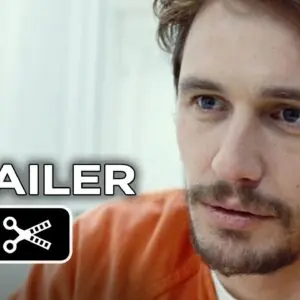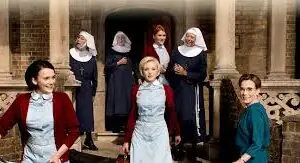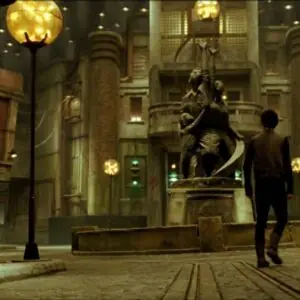The Take, a four-part British miniseries that premiered in 2009 on Sky1, is a gripping, relentless exploration of power, addiction, and the dark underbelly of organized crime in London. Based on Martina Cole’s best-selling novel, the series is a violent, character-driven descent into a criminal world ruled not only by ambition but by personal demons. At the heart of it all is Tom Hardy in an electrifying early performance that commands attention in every frame.

A Crime Story with a Psychological Core
Set in the 1980s and 90s, The Take follows Freddie Jackson (Tom Hardy), a volatile gangster fresh out of prison who wastes no time in clawing his way back to the top of London’s underworld. While inside, Freddie formed strategic alliances, and now he’s ready to cash in. But Freddie is not your typical antihero—he’s not just ruthless; he’s unstable, violent, manipulative, and increasingly unhinged. As he rises, his actions drag his family, especially his cousin Jimmy (Shaun Evans), into a vortex of crime and self-destruction.
Jimmy, soft-spoken and reserved, contrasts starkly with Freddie. At first, he is merely swept along by Freddie’s current, but as the series progresses, he begins to find his own path—and ambition. This dynamic becomes the emotional and narrative backbone of The Take: two cousins on diverging moral trajectories, bound by blood but eventually divided by betrayal, ambition, and mental collapse.
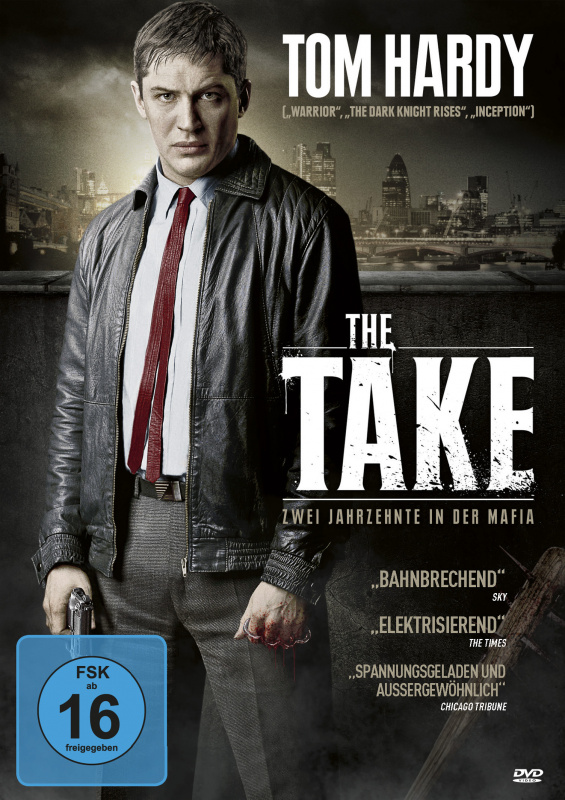
Tom Hardy’s Star-Making Performance
Although the story itself is compelling, it is Tom Hardy’s turn as Freddie Jackson that elevates The Take to something truly memorable. Hardy is completely unrecognizable—snarling, magnetic, and terrifying. He gives Freddie a dangerous charisma that both attracts and repels. It’s a role few could pull off without descending into cartoonish villainy, but Hardy maintains a grounded complexity. Freddie is not just a thug—he’s a man trying to suppress inner demons with alcohol, sex, and violence. Watching him unravel is both horrifying and mesmerizing.
Hardy’s physicality is remarkable—he’s bulked up, constantly prowling, his voice thick with menace. Yet there are moments where we see flashes of vulnerability, particularly in scenes involving his wife Jackie (Kierston Wareing) or his daughter. These glimpses of humanity only make his descent more tragic and his cruelty more disturbing.
Stellar Supporting Cast
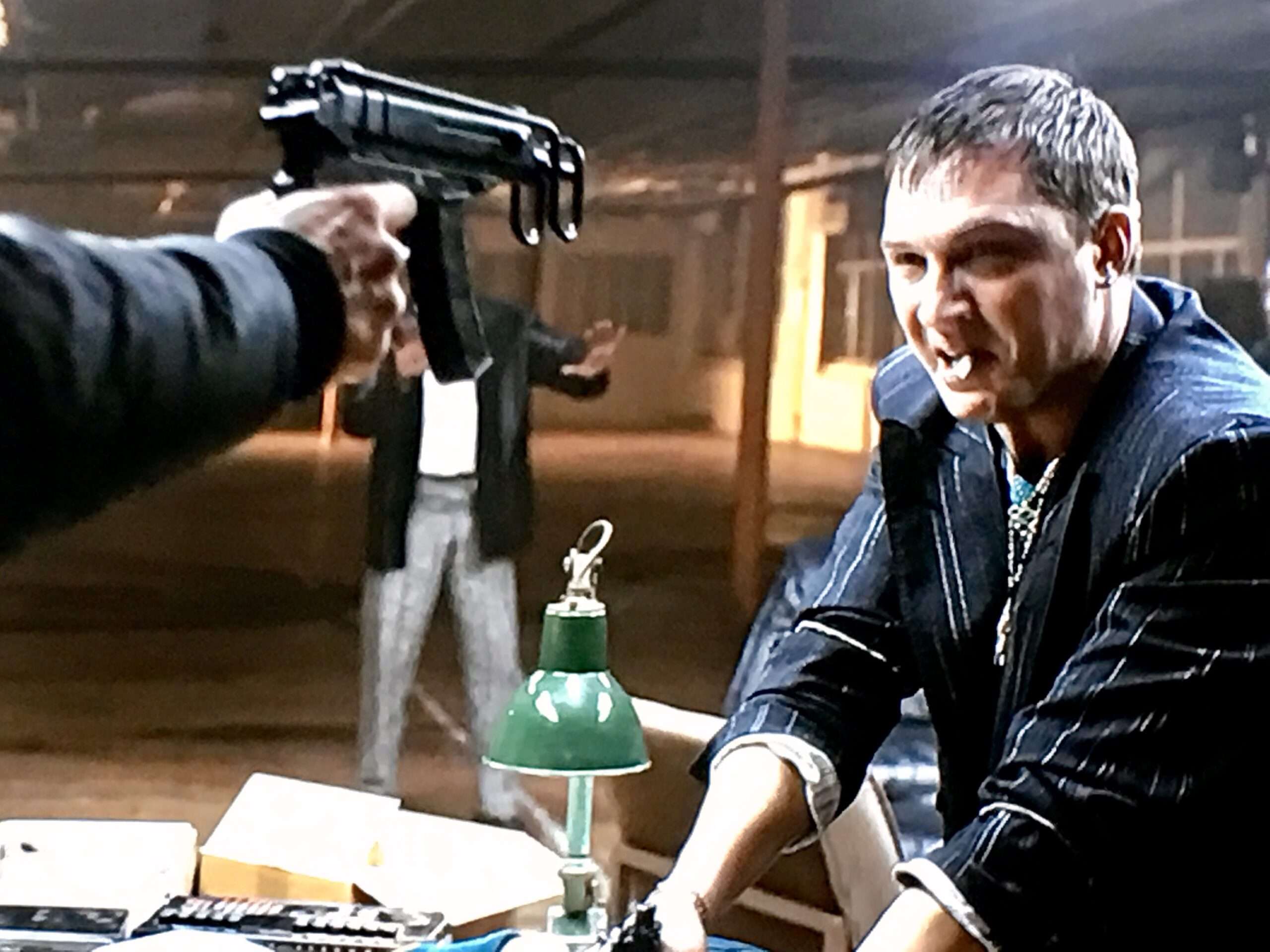
While Hardy may dominate the screen, the supporting cast holds their own. Shaun Evans delivers a nuanced performance as Jimmy, portraying a man torn between loyalty to his cousin and his own growing ambition. His quiet strength and intelligence make him an excellent foil to Freddie’s chaos.
Kierston Wareing as Jackie brings emotional depth to a character often caught in the crossfire. Her arc—from a loyal, tough woman trying to hold her family together, to someone pushed to the brink by abuse and betrayal—is handled with sensitivity and realism. Charlotte Riley (who would later marry Hardy in real life) plays Maggie, Jimmy’s wife, adding a much-needed sense of hope and decency, even as her world begins to crumble.
Brian Cox (as Ozzy, the patriarch of the Jackson crime syndicate) makes a brief but chilling appearance, embodying the cold, calculated power at the top of the criminal pyramid.
Violence, Addiction, and the Cost of Power
The Take does not glamorize crime—it lays bare its brutality. From beatings to betrayals, the show is filled with scenes of shocking violence. Yet none of it feels gratuitous. Instead, it serves to underscore the toxic masculinity and desperation that drive the characters. Freddie doesn’t just want power—he needs it to validate his existence. But with each step up the ladder, he becomes more paranoid, more unhinged, and more isolated.
One of the strongest thematic threads in The Take is addiction—whether it’s to power, drugs, alcohol, or the past. Freddie is addicted to control and rage, Jackie to pills and denial, Jimmy to ambition and the desire to escape his origins. The series paints a bleak but truthful picture of how cycles of violence and trauma are passed down through families, and how some people can’t—or won’t—break free.
Direction and Style
Directed by David Drury and written by Neil Biswas, The Take has a raw, almost cinematic quality. The camera work is tight and intimate, especially during confrontational scenes. The soundtrack mixes 80s hits with haunting original music, helping to root the story in time while also building a sense of dread.
The series’ production values are solid for television, though the show’s aesthetic is purposefully gritty—dimly lit interiors, smoke-filled pubs, bloodied faces, and rundown flats make up most of the landscape. This grim tone matches the story’s darkness, but also makes the rare moments of warmth or hope stand out.

Pacing and Narrative Structure
Told in four hour-long episodes, The Take moves briskly but with enough space to develop its characters. Each episode escalates the stakes—more success, more violence, more unraveling. By the time we reach the finale, the tension is almost unbearable. The conclusion is shocking, brutal, and entirely earned, bringing the story full circle in a way that’s emotionally devastating but deeply satisfying from a narrative perspective.
Criticisms and Limitations
As compelling as it is, The Take isn’t for everyone. Its intense violence, coarse language, and dark subject matter can be overwhelming. Some critics have argued that it leans too heavily into shock value, and that the women characters, while well-acted, aren’t given enough agency within the plot. Others may find the unrelenting bleakness exhausting.
That said, the story’s commitment to realism and its refusal to offer easy redemption are part of what make it stand out. It may not offer the polished moral arcs of American prestige dramas, but it delivers something rawer—and arguably more truthful.
Final Verdict: 9/10
The Take is a gripping, brutal, and ultimately tragic crime drama anchored by Tom Hardy’s searing performance. It’s a character study of self-destruction disguised as a gangster story, and it leaves a lasting impression long after the credits roll. With its complex characters, emotional intensity, and uncompromising vision, it’s one of the most powerful British crime miniseries of the 2000s.
